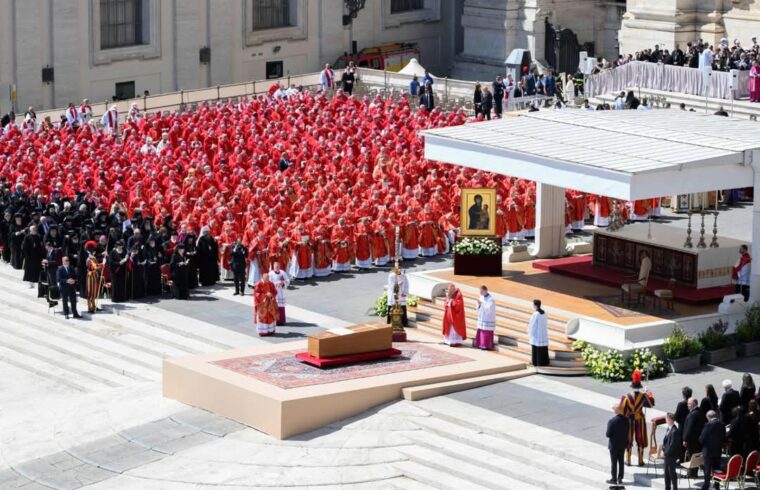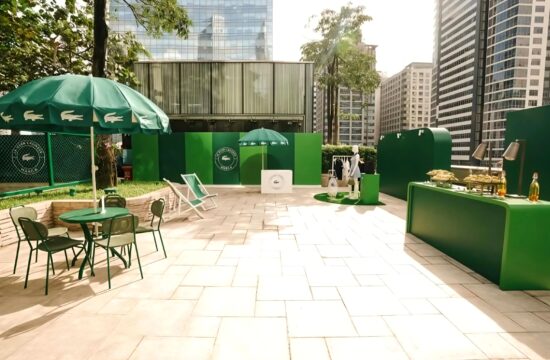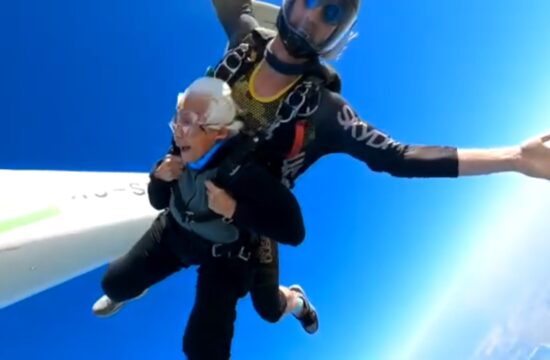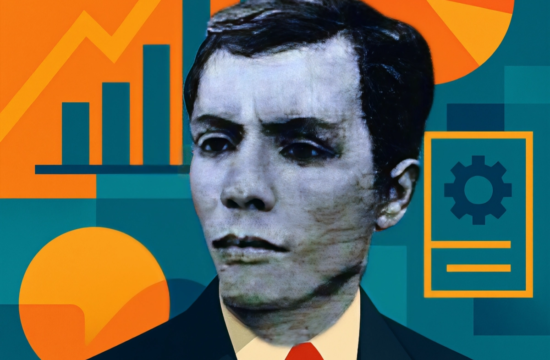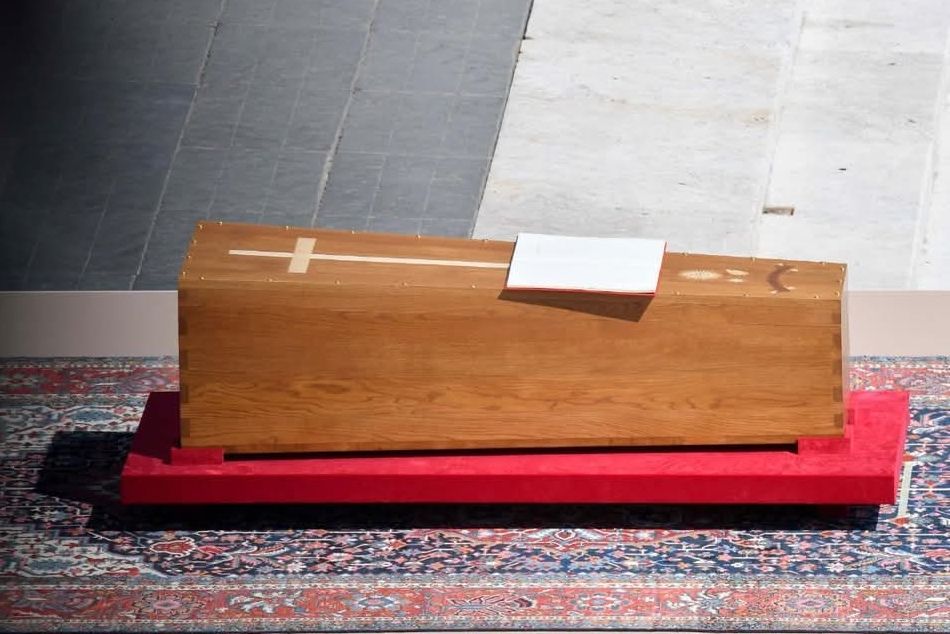
In the stifling heat of a Manila afternoon, where giant fans stirred the incense-laced air, parishioners packed into the Sacred Heart Parish Shrine to bid farewell not just to a pope, but to “Lolo Kiko.”
The screens above the altar broadcast the funeral of Pope Francis from Rome, but in this corner of Asia’s Catholic stronghold, the emotion was unmistakably local. Young people filled the front pews, rosaries in hand, their eyes fixed on the grainy images from St. Peter’s Square.
Four days into a national mourning period, the church had become more than a sanctuary—it was a communal heart, beating in time with a global sense of loss. For many in the Philippines, a country of over 90 million Catholics, the passing of Pope Francis wasn’t distant news. It was family.
“Pope Francis is special for Filipinos because he came here and we saw his impact on the faithful, especially his message of peace and caring for the vulnerable and the poor,” said Fr. Randy Flores, parish priest, speaking to Agence France-Press (AFP). Offering a place to grieve together, he added, was “an act of gratitude.”
His 2015 visit, just two years into his papacy, marked him indelibly in the nation’s soul. He had traveled to Tacloban to comfort survivors of Super Typhoon Haiyan, standing in the rain to deliver Mass amid storm warnings. For many, it wasn’t his words that lingered, but his presence.
Within hours of the Vatican’s announcement, church bells tolled across the archipelago. Requiem Masses were held from coastal chapels to urban cathedrals.
On Saturday, as Cardinal Giovanni Battista Re spoke in Rome, Joylene Sto. Domingo, a youth adviser seated near the front in Manila, recalled straining to catch a glimpse of the pontiff as his motorcade passed by in 2015. “You could feel his kindness even from afar,” she said. “As the faithful, our faith was reenergized and doubled by his visit… That’s why he is our pope.”
Sixteen-year-old Nedji Lee, a parish volunteer, remembered the pope in a more contemporary frame—through TikTok. A clip, he said, stuck with him: asked what miracle he would perform if he could grant only one, the pope said he would heal all sick children. “It made me want to be a better person, a better Catholic,” Nedji said.
Even as the local Mass concluded, many lingered. A group of teenagers gathered around a framed photo of Pope Francis for one last picture, then dispersed toward the church hall, lured by snacks. Others remained in silence, the final rituals from Rome still unfolding on the screen.
Sister Imaniar Rusani, an Indonesian nun serving in the Philippines, stood quietly at the back. She spoke little Filipino, but said that wasn’t the point.
“It’s good to be with the people,” she told AFP. “What we have here is shared loss and faith—there’s no language for that.”
In the end, it wasn’t the grandeur of Vatican liturgy or the politics of papal succession that occupied hearts in Manila. It was something smaller, more intimate: the memory of a man who, to millions, felt like kin. (with AFP)

